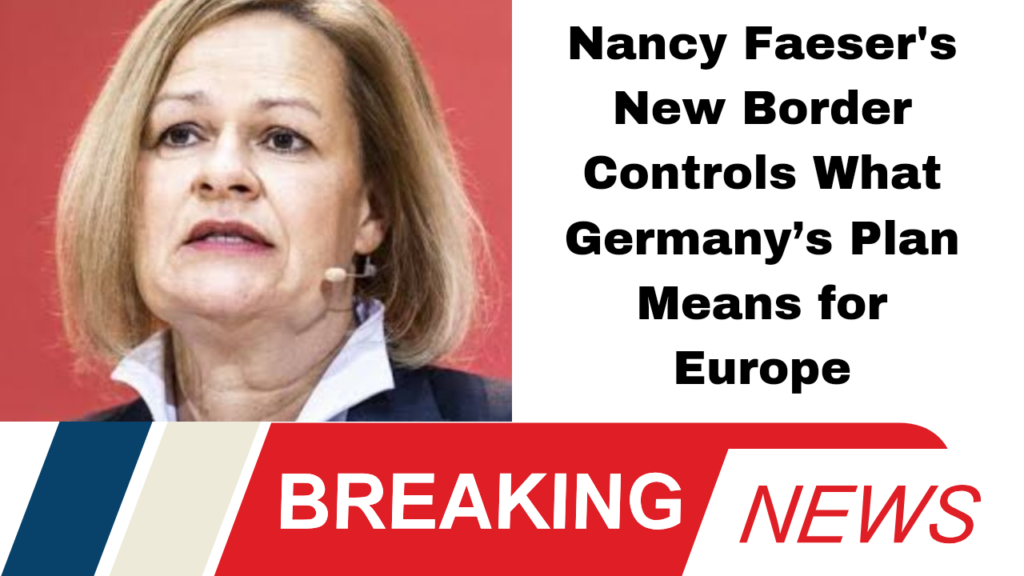Germany has decided to increase border controls, starting September 16. This means people crossing from France, Luxembourg, Belgium, the Netherlands, and Denmark into Germany will face new checks. Germany already has similar controls in place with Austria, Poland, the Czech Republic, and Switzerland.
Interior Minister Nancy Faeser says the new controls are meant to fight illegal migration, terrorism, and serious crime. She mentioned a new plan that could allow officials to turn away more people directly at the border, though she didn’t provide many details.
Political Motivations
Recent events have put pressure on Germany. There have been violent attacks by asylum seekers, and in recent elections, the far-right Alternative for Germany (AfD) party made significant gains. With national elections coming up, Chancellor Olaf Scholz’s government is facing challenges. The Social Democratic Party, which Scholz leads, is struggling, and there are fears that the AfD might win big.
The Schengen Area is a group of 25 EU countries and four non-EU countries that allows people to travel freely between them without passport checks. Normally, temporary border checks are used only in emergencies, like during a terror attack or a pandemic. However, many European countries have recently reintroduced border controls, often because of political pressure rather than clear immediate threats.
Many experts and observers are concerned about Germany’s new border controls. They argue that these controls could hurt the Schengen Agreement, which is all about free movement within Europe. Alberto Alemanno, a professor of European law, and Christopher Wratil, a university scholar, say that the new measures might be excessive and motivated more by political pressure than by real security needs.
Reintroducing border controls could be very costly. A 2016 report estimated that this could lead to a €470 billion loss over ten years for Europe. Gerald Knaus from the European Stability Initiative warns that these controls could effectively end the Schengen Zone and lead to complicated measures like building border fences.
Responses from Other European Countries
The European Commission, which oversees the Schengen rules, is expected to approve Germany’s new border controls despite concerns. Austria and Poland have already reacted strongly. Austria has said it will not take back migrants who are turned away at the German border. Poland’s Prime Minister Donald Tusk has called Germany’s decision “unacceptable” and is asking for urgent talks.
Germany’s decision to extend border controls is likely to test European unity. It raises questions about the future of free movement in the Schengen Area and how Europe will handle migration .











More Stories
Netanyahu Under Fire as Leaked Documents Scandal and Hostage Crisis Deepen
Mount Fuji’s Snowless Peak A Sign of Climate Change and Japan’s Cultural Icon in Crisis
Malik Mumbai’s 15 Crore Monthly Income ‘Haar Meri Jeet Apki Offer’ for WBBL 2024 Your Guaranteed Win or Refund!